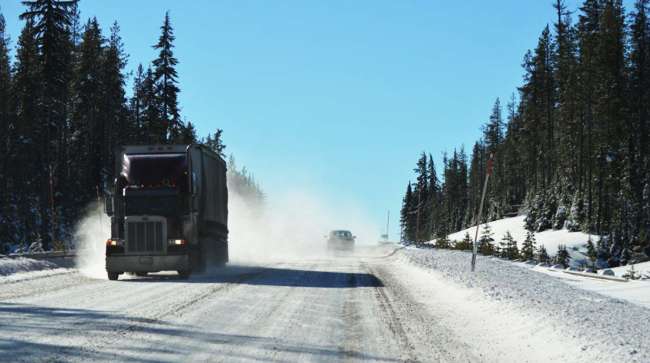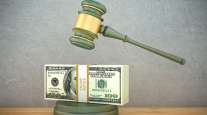Senior Reporter
Carriers Should Be Involved in Drivers’ Decisions in Bad Weather, Attorneys Say

INDIANAPOLIS — While the truck driver is by regulation the person to decide when to slow down or pull off to the side of the road in bad weather, it still is a good idea for motor carriers to assist drivers in making those decisions.
That was among the takeaways outlined during a June 5 session at the 2018 Scopelitis Law Seminar here that offered tips on how to avoid common truck accidents and what to do even before drivers and carriers are forced to defend their actions in court.
“Having looked at and worked on a number of these cases, my conclusion is this: It still is the duty of the driver to make a determination of whether to not continue operating a tractor-trailer,” said Jay Starrett, an accident litigation attorney with law firm Scopelitis, Garvin, Light, Hanson & Feary.

Starrett
However, Starrett said that with today’s technologies allowing motor carriers to monitor weather conditions and stay in touch with drivers, they have a duty to help drivers make those decisions.
It could end up saving carriers millions of dollars being assessed damages in accident litigation, according to Starrett.
Bad-weather crashes are among the three most common and troublesome for carriers. The others involve accidents that start, or end, on highway shoulders and those in which the driver is distracted, according to a trio of Scopelitis attorneys with experience in such cases.
“As an experienced attorney, I have never seen anything good happen on the side of the road,” attorney Michael Langford said. “I probably have five active claims right now that involve this.”

Langford
To minimize crashes involving trucks parked on road shoulders, Langford said that regulations require that drivers should only move to the roadside when there is an emergency or it is unavoidable.
Langford noted that the risk of accidents has become more problematic with a nationwide scarcity of parking places for heavy trucks, forcing drivers running out of their hours to park on interstate shoulders, and exit and entrance ramps.
“Is your emergency created by you because of your poor planning? Langford asked. “Or was it truly an emergency that was not predictable? What was the last exit, and what was the next exit, that you could have gotten off the highway? How close in the next rest stop?”
Regulations also require that drivers parked on roadsides promptly turn on their flashers and put out their flares or triangles, Langford said.
“This matters,” Langford said. “And it matters a lot in the evaluation of the claim. Because I will tell you again and again and again, I have had accident claims where everyone in the world says, ‘couldn’t you see that 70-foot-long tractor-trailer unit, 13 feet, 6 inches high — clear as can be?’ But the plaintiff hires an expert, who says, ‘the reason they didn’t see it is because there were no triangles or flashers or flares out.’ ”
Federal Motor Carrier Safety Administration regulations do not allow drivers to talk on their smartphones unless they are hands-free, Scopelitis attorney John Greene said.
“Anything that you’re doing that takes your eyes, mind or hands off the road is distracted driving,” he said.

Greene
Distracted driving causes attention blindness, reduced reaction time and delayed information recognition, Greene said.
But texting is clearly the most risky — so risky that every motor carrier should have a policy that calls for the termination of drivers who are caught texting while behind the wheel, he said.
“I know it’s hard to terminate a driver in these times, but that is the safest thing to do,” Greene said. “And when you go in front of a jury you’ll be able to say, ‘We did everything we could to prevent this from happening.’ And that works.”
He pointed out that a study by the Virgina Tech Transportation Institute concluded that a driver who is texting is 23 times more likely to be involved in a crash than a nondistracted driver.
Truckers caught texting can face anything from a large monetary penalty or loss of their CDL to jail time. Carriers can be fined up to $11,000 if they require drivers to text, or have knowledge that they text, according to Greene.
“Plaintiffs’ attorneys are now calling distracted driving the new driving while intoxicated,” Greene added.




